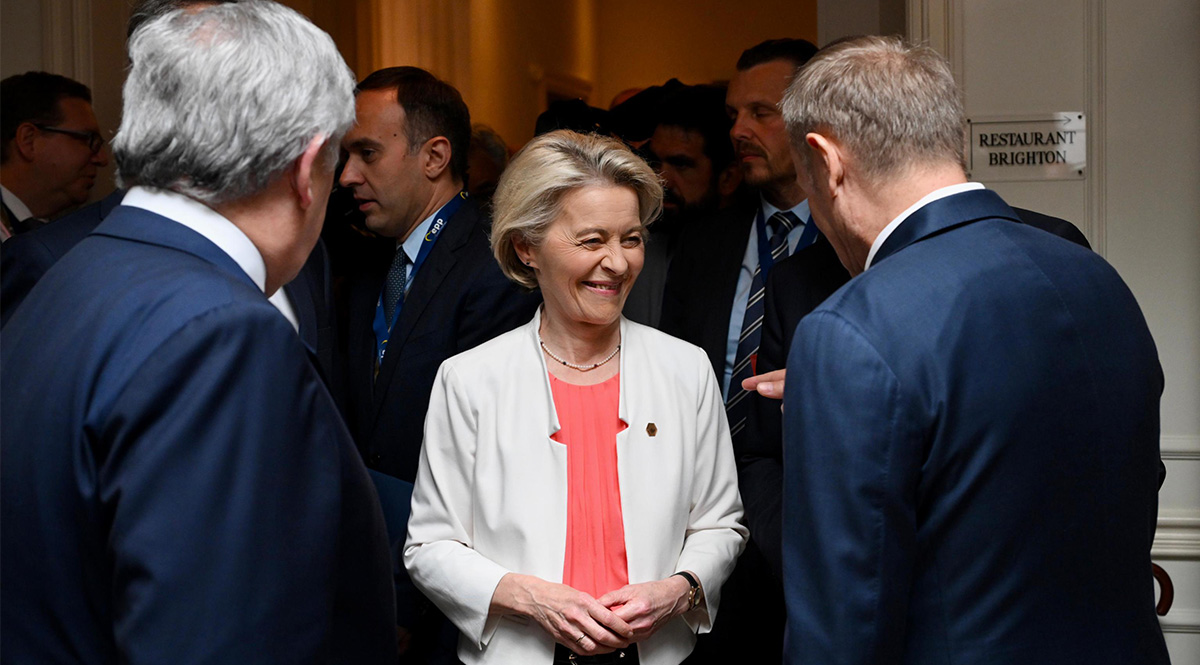EC Imposes Provisional Duties on Chinese Battery Electric Vehicles
On 5 July, provisional countervailing duties on Chinese-made battery electric vehicles took effect in the EU over Chinese subsidies for their production. The level of duties set by the European Commission will not eliminate the price advantage of Chinese manufacturers over EU manufacturers, but will reduce their unfair competitive advantage in the single market. China will try to reverse the EU’s decision through threats to restrict access to its market, for example in the food sector, and negotiations with the Commission and Member States.
.jpg) Antonio Pisacreta / Zuma Press / Forum
Antonio Pisacreta / Zuma Press / Forum
What does the European Commission’s decision concern?
Following an investigation from October 2023, the EC concluded that subsidies for the production of battery electric vehicles (BEVs) in China are unfair and threaten the interests of European manufacturers. It therefore decided to impose provisional countervailing duties. These can be charged retroactively (i.e., cover imports from 90 days before their introduction), but will only be collected if the EC and the Member States decide to impose definitive duties within four months. The Commission will present the definitive countervailing duty proposal to the Member States, which will vote on it pursuant to the examination procedure under comitology rules,. A qualified majority will be needed to reject the proposal and the vote will be binding.
The provisional duties vary by the level of subsidies as determined by the EC for producers that were individually investigated: 17.4% for BYD, 19.9% for Geely, 37.6% for SAIC, 20.8% for other producers that cooperated with the EC in the subsidy investigation, and 37.6% for producers that did not cooperate with the Commission.
The proposed duties will apply in addition to the 10% tariff already in place on BEV imports. This means that the overall burden for some manufacturers will reach 50%. They will cover both Chinese brands and foreign brands produced in China, such as vehicles from U.S.-based Tesla, which has already applied for individual examination and calculation of countervailing duties on its vehicles.
What could be the economic consequences of the EC’s actions?
The share of BEVs produced in China for the EU market was 19% in 2023. Around half of them are Chinese brands, which accounted for less than 1% of the EU market as recently as 2019, but their position is growing rapidly due to low prices resulting from, among other things, subsidies. The EC’s decision will be a problem for Chinese manufacturers due to the sector’s heavy reliance on exports and the recent introduction of similar tariffs by the U.S., Turkey, and Brazil.
The EC’s aim is to restore fair competition to allow the European electromobility sector to grow, not to block Chinese BEV imports altogether. The introduction of countervailing duties will lead to an increase in prices and a slowdown in the expansion of Chinese BEVs on the EU market or to a decrease in manufacturers’ margins. The former will translate into increased price competitiveness for EU manufacturing companies, the latter into increased revenue for the EU budget without consumers bearing the burden. It is also possible for these firms to relocate part of their production process to the EU. The success of this policy also depends on the actions of the Member States, which take different approaches to the involvement of Chinese companies in EV factories in the EU (e.g., the technology partnership of China’s Geely and Poland’s Izera).
What is China’s response?
Following the initial announcement by the EC of the level of provisional duties on 12 June, the Chinese Ministry of Commerce accused the EU of protectionist practices that “could lead to a trade war”. On 23 June, it announced that it had opened an investigation into the EU’s use of subsidies to support dairy companies, as well as dumping of pork exports on China. The launch of the investigations (which will last until June 2025) is mainly intended to persuade Member States to either get the EC to soften its decision before imposing definitive duties this November, or to vote against them during the approval procedure. Chinese politicians’ talks in the EU also serve this purpose: Ding Xuexiang, deputy prime minister and member of the Standing Committee of the CPC Central Committee, discussed the issue with the Belgian authorities and at the EC. Wang Wentao, minister of commerce, visited Spain (the largest exporter of pork to China) and Portugal and undertook negotiations with the EC on 22 June on the level of duties, so far without a positive outcome for China.
What does the EC’s decision mean for EU-China relations?
The EC’s decision has an important political dimension. It is practical confirmation of the desire in the EU to reduce dependence on China. The Commission is supported by France (which is unlikely to change after the parliamentary elections) and Italy. In Germany, Chancellor Scholz is trying to get the EC to limit its actions. In addition to Germany, the imposition of duties has been criticised by Sweden and Hungary, among others. These objections may have an impact on the definitive duties, but not on the entry into force itself. The re-election of Ursula von der Leyen as EC president should mean a continuation of the strong policy towards China, above all in the industrial sector. It also makes it likely that the EU will tighten its actions against China in other sectors, such as further sanctions on companies supplying dual-use products to Russia.
For China, the EC’s firm stance, especially taken against Germany, demonstrates the willingness of the EU to act proactively, in contrast to previous passive reactions to other practices of Chinese companies. The Chinese authorities, while maintaining their aggressive rhetoric, will likely limit their reactions, hoping for a softening of the EC’s position on the level of definitive duties. It is also possible that the interest of Chinese companies to locate some BEV production to Europe (such as at the Leapmotor plant in Tychy) will increase as a result.






